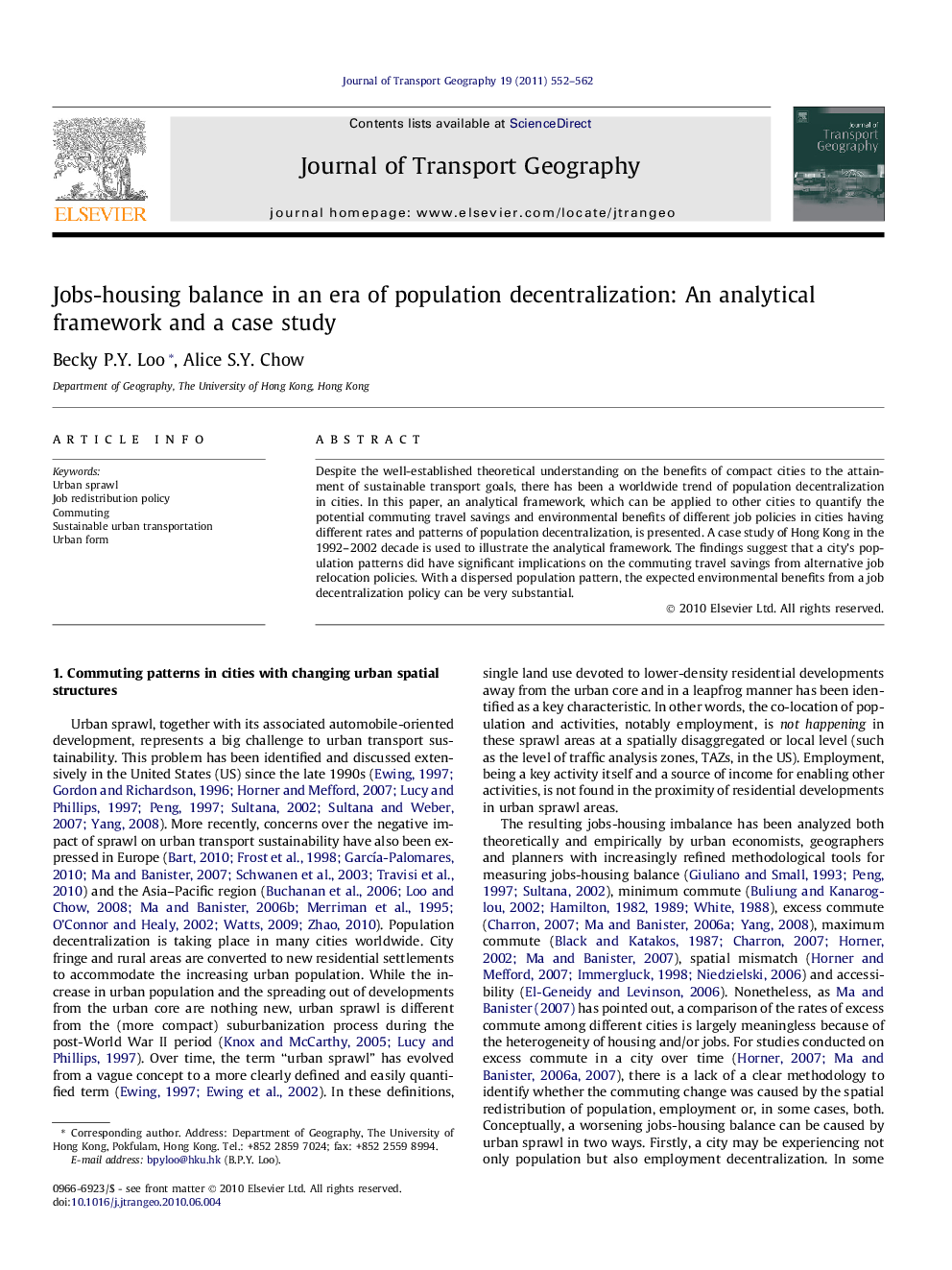| Article ID | Journal | Published Year | Pages | File Type |
|---|---|---|---|---|
| 1059488 | Journal of Transport Geography | 2011 | 11 Pages |
Despite the well-established theoretical understanding on the benefits of compact cities to the attainment of sustainable transport goals, there has been a worldwide trend of population decentralization in cities. In this paper, an analytical framework, which can be applied to other cities to quantify the potential commuting travel savings and environmental benefits of different job policies in cities having different rates and patterns of population decentralization, is presented. A case study of Hong Kong in the 1992–2002 decade is used to illustrate the analytical framework. The findings suggest that a city’s population patterns did have significant implications on the commuting travel savings from alternative job relocation policies. With a dispersed population pattern, the expected environmental benefits from a job decentralization policy can be very substantial.
